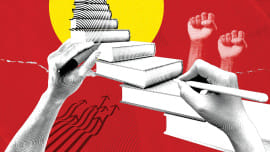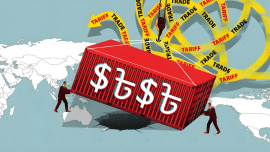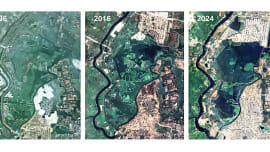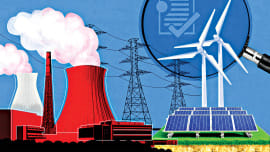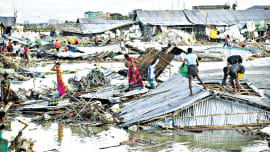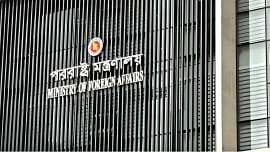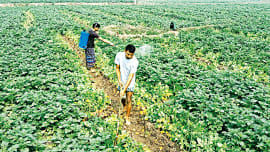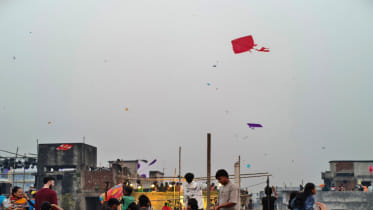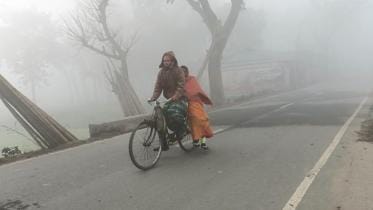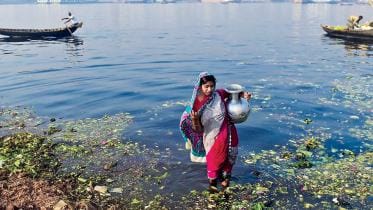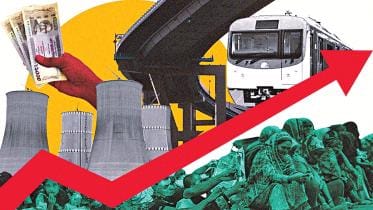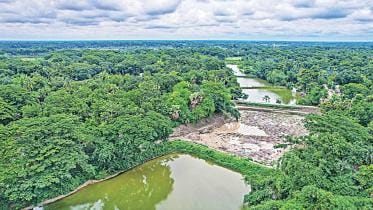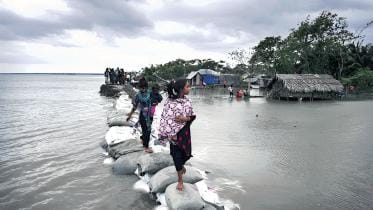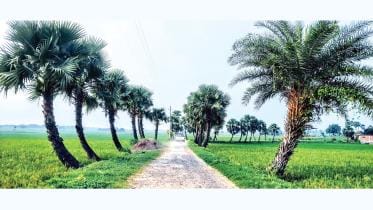Faltering education is a national emergency, fix it now
25 January 2026, 00:13 AM
Big Picture
Gender violence and Bangladesh's future
15 January 2026, 00:00 AM
Big Picture
Bangladesh and the West’s double game on trade and climate
29 January 2026, 19:16 PM
Big Picture
Between compassion and capital: Shashi Doctor’s moral world
28 January 2026, 13:45 PM
Big Picture
From fear to trust: Why policing must change now
25 January 2026, 07:45 AM
Big Picture
A cry for a liveable city
25 January 2026, 07:29 AM
Big Picture
All hopes will lose steam without a sustainable energy plan
25 January 2026, 06:46 AM
Big Picture
Our disasters, ‘their’ management: Need to break the chain of complacency and ‘not questioning’
25 January 2026, 05:05 AM
Big Picture
Bangladesh’s old diplomacy won’t survive new realities
25 January 2026, 04:28 AM
Big Picture
When policy lacks a development philosophy, failure follows
24 January 2026, 23:49 PM
Big Picture
The future of Bengal Delta
During the peak of the monsoon season, it takes the high Himalayan water only days to reach the Bay of Bengal; however, it is a different story for the sediment coming from those high places.
3 hour(s) ago
Bangladesh and the West’s double game on trade and climate
The forced selling by the US and the EU will shrink Bangladesh’s capacity to spend on more urgent needs, including tackling climate change and climate adaptation.
29 January 2026, 19:16 PM
Between compassion and capital: Shashi Doctor’s moral world
Manik introduces the main character of his novel by stating, 'Shashi’s character has two distinct parts. On one side, he does not lack imagination, passion, and a sense of humour; on the other, he also has enough affection for domestic acumen and wealth.
28 January 2026, 13:45 PM
From fear to trust: Why policing must change now
When institutions serve power, not people
25 January 2026, 07:45 AM
A cry for a liveable city
In conversation with Adnan Morshed
25 January 2026, 07:29 AM
All hopes will lose steam without a sustainable energy plan
Bangladesh stands at the brink of a major energy crisis, the consequence of decades of emphasis on power generation without securing a sustainable supply of primary energy.
25 January 2026, 06:46 AM
Our disasters, ‘their’ management: Need to break the chain of complacency and ‘not questioning’
The present state of disaster management in Bangladesh reflects both substantial progress and ongoing challenges.
25 January 2026, 05:05 AM
Bangladesh’s old diplomacy won’t survive new realities
In the post-July 2024 situation, Bangladesh has been facing several new strategic realities.
25 January 2026, 04:28 AM
Faltering education is a national emergency, fix it now
When the foundation of governance of the state is shaky, public services such as education and healthcare also become weak and tottering.
25 January 2026, 00:13 AM
When policy lacks a development philosophy, failure follows
Every elected government sets certain goals once it comes to power. Most of the time, these stated goals sound impressive.
24 January 2026, 23:49 PM
Is Bangladesh ready for ageing?
Bangladesh stands at a demographic turning point. For at least three decades, the country has benefited from a youthful population, declining fertility, and an expanding workforce, which is often referred to as a ‘demographic dividend’.
24 January 2026, 00:35 AM
Flying traditions: Sakrain and the shared life of old Dhaka
Sakrain, the vibrant kite-flying festival of Old Dhaka, is one of the city’s oldest and most cherished seasonal urban traditions.
21 January 2026, 14:42 PM
Cold waves in Bangladesh: Public health risks and preparedness imperatives
Cold waves are a recurring winter phenomenon in Bangladesh and pose serious public health risks.
18 January 2026, 13:09 PM
Eroding edges, emerging lands: Mapping the Meghna Estuary
Beyond its shifting shores, the Meghna Estuary is a treasure trove of ecology and economy.
17 January 2026, 00:00 AM
Managing water is like managing life: Time to rethink urgently
The popular notion has been that we have surplus water. But Bangladesh presents a paradoxical situation.
15 January 2026, 00:00 AM
Bangladesh’s ‘miracle’ running out of time?
For nearly 50 years, Bangladesh has been one of the world’s favourite outliers. Born in the trauma of 1971 with a shattered economy and a population of 75 million, the country was summarily dismissed as a “basket case.”
15 January 2026, 00:00 AM
Fail to save rivers, and we fail to save ourselves
Our country is a riverine land. Rivers are deeply intertwined with the very formation of this land. Yet, even today, the definition of a river has not been finalised in Bangladesh.
15 January 2026, 00:00 AM
From siltation to toxic pollution: Coastal water problems
The rivers and canals of Bangladesh are being made to die. Bangladesh is a country of water, where land and water are entwined and ever shifting.
15 January 2026, 00:00 AM
Gender violence and Bangladesh's future
Gender-based violence (GBV) remains prevalent and significant in Bangladesh, deeply rooted in our patriarchal norms, despite notable progress in overall economic and political participation over the decades since our liberation.
15 January 2026, 00:00 AM
Can the Barind Tract survive its own agricultural success?
Stand in the middle of the High Barind in late April, and you are standing on one of the most geologically distinct surfaces in Bangladesh.
15 January 2026, 00:00 AM
